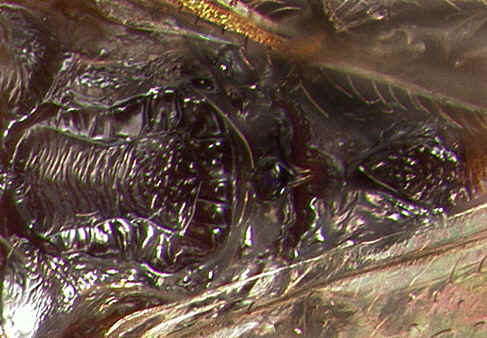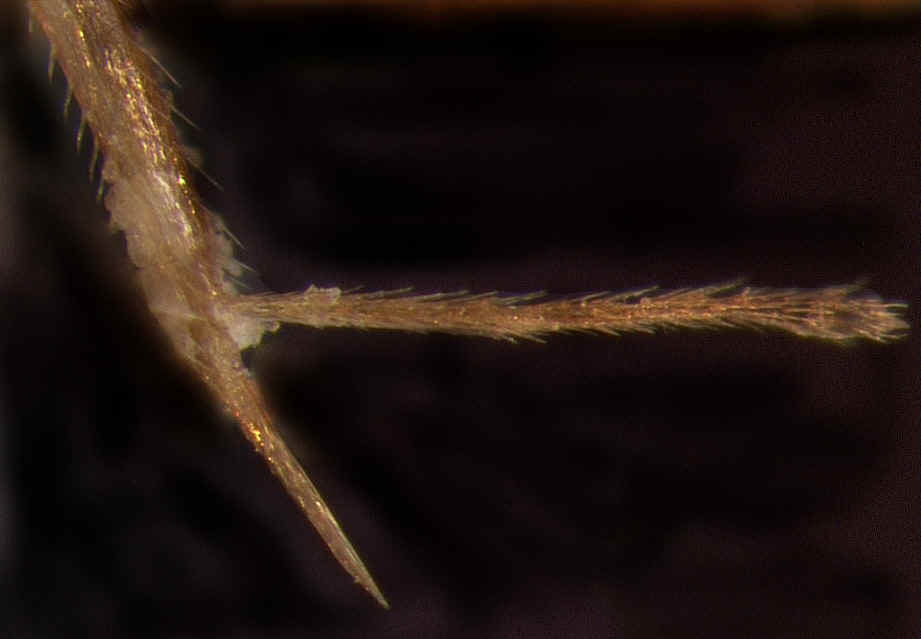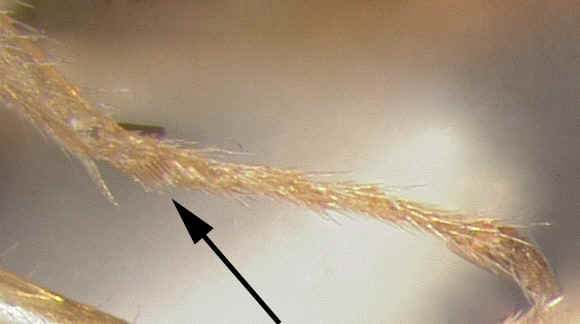
Alveoplectrus scutellum and propodeum
return to: Eul 1 Eul 4 ent 1 eud 1 cir1 eul 1 eul 5 eul 10 eul 14 eul 17 eul 20 eul 24 eul 27
Alveoplectrus
Wijesekara & Schauff, 1997 comparative info
return to: prev home
Eyes setose. Vertex, occiput, pronotum, and mesoscutum uniformly setose. Mandibles not
capable of meeting medially. Face with distinct tentorial depressions near clypeus;
occipital carina present or absent; postoccipital carina present; malar sulcus present.
Flagellum with 4 funicular segments and a united club. Pronotal collar not carinate;
pronotum and mesoscutum uniformly setose; scutellum with sublateral grooves
that meet posteriorly; dorsellum with medial pit (where the longitudinal
and transverse carinae meet), and tiny posterior projection into basal cup of propodeum. Propodeum
with 2 submedian carinae meeting anteriorly. Petiole much broader than long. Basal
protarsal segment with strigil; metatibial apex projecting slightly beyond tarsal
base; 1 metatibial spur, reaching apex of 2nd metatarsal segment. Compare
with: Euplectromorpha.

Alveoplectrus scutellum and propodeum


Alveoplectrus metatibial spur (left), and protarsus with strigil indicated
(right)
Biology: Parasitoids of Lepidoptera.
Comments: 3 described species.
Comparative information:
Euplectromorpha: Pronotal collar carinate; scutellum with nearly parallel sublateral grooves that do not meet posteriorly. Occipital carina [and postoccipital carina] absent. Basal protarsal segment without strigil. Dorsellum without median pit. Usually with 2 metatibial spurs, rarely with 1.
References
Schauff, M.E., J. LaSalle, & L.D. Coote. 1997. Chapter 10. Eulophidae. in "Annotated Keys to the Genera of Nearctic Chalcidoidea (Hymenoptera)". G.A.P. Gibson & J.T. Huber, eds. NRC Research Press, Ottawa.
Wijesekara, G.A.W. & M.E. Schauff. 1997. Two new genera and three new species of Euplectrini (Hymenoptera: Eulophidae) from the New World. Proceedings of the Entomological Society of Washington. 99(1): 101-109.